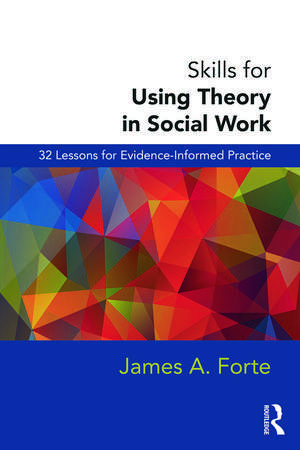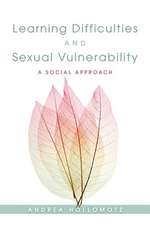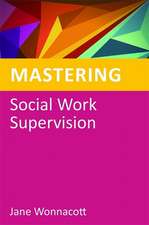Skills for Using Theory in Social Work: 32 Lessons for Evidence-Informed Practice
Autor James A. Forteen Limba Engleză Paperback – 4 feb 2014
Presenting 32 core skills, Skills for Using Theory in Social Work provides a conceptual foundation, a vocabulary, and a set of skills to aid competent social work theorizing. Each chapter outlines the knowledge and action components of the skill and its relationship to core practice behaviours, along with learning and reflection activities. The lessons are divided into four parts:
- Section one discusses foundational material, including self-identification as a theorist-practitioner, the deliberate use of the term theory, and a social work approach to the selection of knowledge.
- Section two focuses on the adept use of theorizing skills. It covers identifying assumptions, using concepts, formulating propositions, organizing theory elements inductively or deductively, summarizing and displaying the elements of a theory, gathering and organizing assessment information and communicating with clients and colleagues about tentative theories.
- Section three includes lessons preparing social workers for the construction of useful middle-range theories including causal theories and interpretive theories and for testing and sharing these practical theories.
- Section four presents skills to develop critical thinking about theoretical knowledge. These include avoiding the misuse of theory, judging a theory using scientific standards, judging a theory by professional standards, critiquing theory in its cultural and historical context and making judgments about the likely long-term impact of a theory.
| Toate formatele și edițiile | Preț | Express |
|---|---|---|
| Paperback (1) | 490.91 lei 43-57 zile | |
| Taylor & Francis – 4 feb 2014 | 490.91 lei 43-57 zile | |
| Hardback (1) | 1005.80 lei 43-57 zile | |
| Taylor & Francis – 10 feb 2014 | 1005.80 lei 43-57 zile |
Preț: 490.91 lei
Nou
Puncte Express: 736
Preț estimativ în valută:
93.96€ • 96.83$ • 79.32£
93.96€ • 96.83$ • 79.32£
Carte tipărită la comandă
Livrare economică 03-17 martie
Preluare comenzi: 021 569.72.76
Specificații
ISBN-13: 9780415726849
ISBN-10: 0415726840
Pagini: 344
Ilustrații: 14 black & white tables, 15 black & white line drawings
Dimensiuni: 156 x 234 x 23 mm
Greutate: 0.5 kg
Ediția:1
Editura: Taylor & Francis
Colecția Routledge
Locul publicării:Oxford, United Kingdom
ISBN-10: 0415726840
Pagini: 344
Ilustrații: 14 black & white tables, 15 black & white line drawings
Dimensiuni: 156 x 234 x 23 mm
Greutate: 0.5 kg
Ediția:1
Editura: Taylor & Francis
Colecția Routledge
Locul publicării:Oxford, United Kingdom
Public țintă
Postgraduate and UndergraduateCuprins
Foreword Introduction Section 1: Theorizing Basics 1. Identify and Act as Theorist Engaged in Theoretical Thinking 2. Identify and Use Purposefully Different Styles of Theorizing 3. Identify and Use the Social Work Approach to Knowledge Selection 4. Identify and Use Knowledge from Varied Sources 5. Identify and Use Theory Differentially by Level of Abstraction 6. Identify and Use Theory Differentially by System Level Section 2: Applying Theory (Deconstructive and Reconstructive Theorizing) 7. Identify the Theoretical Aspects of the Practice Puzzle 8. Identify and Borrow from Relevant Theoretical Frameworks 9. Identify and Learn From Relevant Exemplary Theorists 10. Check on and Imagine Puzzle Patterns Using Theory’s Root Metaphors 11. Check on and Specify Theory’s Assumptions 12. Identify and Adapt a Theory’s Concepts 13. Identify and Reformulate a Theory’s Propositions 14. Identify and Reorganize a Theory’s Deductive Argument 15. Identify and Reorganize a Theory’s Inductive Argument 16. Summarize the Relationship between a Theory’s Elements 17. Display a Theory’s Elements Section 3: Constructing Practical Theories 18. Construct Practical Theories in the Middle Range 19. Construct a Middle Range Theory about Causes 20. Construct a Middle Range Theory about Processes or Themes 21. Translate and Speak Theory with Clients & Colleagues Section 4: Critical Thinking about Theoretical Knowledge Using Scientific, Practical, and Professional Standards 22. Think Critically about Theory 23. Critique Theory Using Scientific and Practical Standards 24. Critique Theory Using Professional Standard of Ethics and Values 25. Critique Theory Using Professional Standard of Evidence 26. Critique Theory Using Professional Standard of Holism 27. Critique Theory Using Professional Standard of Justice 28. Critique Theory Using Professional Standard of Sensitivity to Diversity 29. Critique Theory Using Professional Standard of Strengths 30. Critique Theory by Reference to Moral and Technical Uses 31. Critique Theory in Historical and Cultural Context 32. Critique Theory Considering Long Term Impact Section 5: Conclusion Coda: Principles for Practical Theorizing
Notă biografică
James A. Forte is Professor of Social Work at Salisbury University, Maryland, USA.
Recenzii
‘The puzzle pieces fit just right with these texts. They can be effective for the everyday practitioner who wants to enhance and evaluate his or her own practice. They are similarly effective for budding undergrad students who have been told they should join social work because they are good at helping others. Yet, I found the book was just right for those who love theorizing and grapple with the pedagogical quandary of helping students think about how they think and what goes into authoring their own ending. The texts use illustrations, tables, grids, and sequential knowledge grids allowing individuals to use them for their own gain. This simple concept helps the practitioner or graduate student spring to page 60 and the undergraduate student use it as a dictionary approach to learning concepts versus simply reading page 1 to page 220. These books are like sweet victory where you feel you have scored. This is the best we have done in theory and theory education to date. Forte hits the homerun and we celebrate.’ – The New Social Worker
'Forte provides useful learning activities and reflections to support group discussion and self-directed learning, focused throughout this text on US CSWE competency statements.'- Deborah Hart, University of Newcastle, Australia, Australian Social Work
'Forte provides useful learning activities and reflections to support group discussion and self-directed learning, focused throughout this text on US CSWE competency statements.'- Deborah Hart, University of Newcastle, Australia, Australian Social Work
Descriere
Using theory, research and experiential knowledge is a critical component of good social work practice. This text presents 32 core skills for integrating theorizing into your social work practice, demonstrating how to search for, select and translate academic knowledge for practical use in helping people improve their lives and environments.















